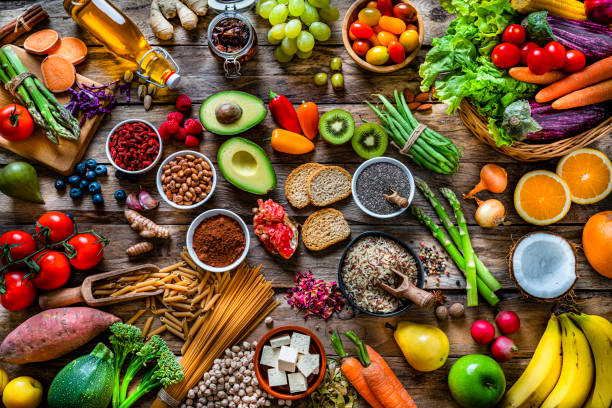The ONE organ responsible for high blood pressure.
The Importance of Micronutrients in Hypertension and Diabetes

The DASH diet includes foods that are rich in potassium, calcium and magnesium. These nutrients help control blood pressure. The diet limits foods that are high in sodium, saturated fat and added sugars.
What is hypertension?
As it is often referred to as the “silent killer”, most individuals with hypertension may not be aware that they have it until the symptoms become uncomfortably obvious.1 Hypertension, or high blood pressure, is a serious medical condition. Blood exerts pressure on the walls of the arteries through which it flows. This is known as blood pressure. When this pressure is high, it is termed as hypertension and can have serious consequences if not kept under control.1 It is important to remember that certain risk factors can also increase your risk of developing hypertension. Some of these that can be modified for better health are:1- The excessive intake of salt
- Eating foods rich in saturated fats and trans fats
- A diet lacking in nutritious fruits and vegetables
- Lack of physical exercise
- Obesity
- The use of tobacco or alcohol
How can micronutrients help in managing hypertension?
Micronutrients include minerals and vitamins that are needed by the body in small amounts for proper development and functioning of the body.2 Nutrition plays a very important role in managing hypertension as you will see below.3,4- The DASH eating plan (Dietary Approaches to Stop Hypertension) is a diet plan that is specifically tailored to ensure a healthy heart. According to this diet plan, you must take at least 4-5 servings a day of fruits and vegetables, which will give you vitamins such as vitamin B6 and C. You should also have nuts, seeds and grains that will provide you with micronutrients such as magnesium and vitamin E. The food items included in the DASH diet are rich sources of vitamins and minerals that can help in controlling blood pressure.3
- Apart from this, you must ensure a low intake of sodium, which will help in lowering your blood pressure.4
- Increasing the intake of potassium as you reduce sodium can also reduce blood pressure.4
- Vitamin C taken in the form of supplements may also help in lowering blood pressure.4
What is diabetes?
Diabetes is an endocrine disorder in which your blood glucose level is consistently high. Too much glucose in the blood can lead to a multitude of health issues in the long run such as nerve damage and damage to the eyes and kidneys.5,6 The commonly seen types of diabetes are type 1 and type 2.5How can micronutrients help in the management of diabetes?
In people with diabetes, an unhealthy diet that is lacking in nutrients can lead to declining health. It is important to ensure a sufficient intake of micronutrients to prevent the disease and manage it.6 The following micronutrients can help with this:2,6,7- Vitamin B: This vitamin can help greatly with the metabolism of proteins, carbohydrates and lipids. The sufficient intake of vitamin B helps in preventing disorders related to the nervous system in patients with diabetes. It can be found in foods such as chicken, bananas and cereals.
- Vitamin C: Vitamin C may not only help with reducing blood sugar in individuals with diabetes but may also helps in preventing the damage to organs such as the eyes, nerves and kidneys caused by diabetes. This vitamin can be found in food sources such as citrus fruits, broccoli and tomatoes.
- Vitamin E: Vitamin E can help in reducing inflammation in the body, thus preventing future complications associated with diabetes. This micronutrient is found in food sources such as sunflower oil and seeds, peanut butter and almonds.2
- Omega-3 fatty acids: Regular supplementation with omega-3 fatty acids can also help in combating inflammation and regulating the blood sugar levels. It is found in food sources such as fish and flaxseed and supplements such as fish oil.
- Magnesium: Magnesium deficiency in patients with diabetes is linked to increased insulin resistance and higher risk for complications such as heart attack. Hence, this micronutrient is important for reducing heart-related complications. It can be found in food sources such as nuts, legumes and whole wheat.
- Zinc: Zinc helps in preventing oxidative damage to the cells and is present in food sources such as turkey, oysters and the Alaskan king crab.
blood pressure and diabetesBlood Pressure Managementcure for high blood pressureHypertension Managementimportance of micronutrientsmicronutrients and blood pressuremicronutrients effects on blood pressuremicronutrients help in managing hypertensionnatural decongestants and hypertensionNatural Hypertension RemedyRemedy for Hypertension









